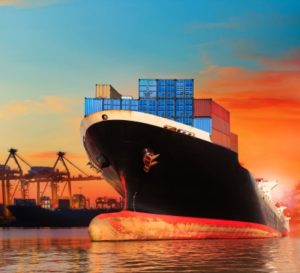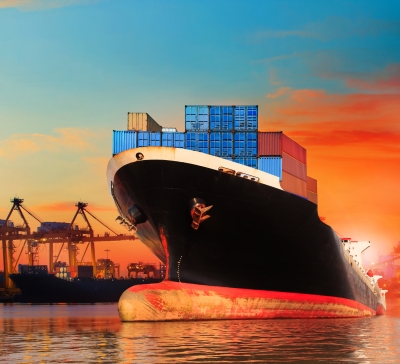 The draft customs administrative order (CAO) that implements provisions of the Philippine Customs Modernization and Tariff Act (CMTA) governing export cargo clearance and issuance of the Certificate of Origin (CO) has been released.
The draft customs administrative order (CAO) that implements provisions of the Philippine Customs Modernization and Tariff Act (CMTA) governing export cargo clearance and issuance of the Certificate of Origin (CO) has been released.
The draft order which carries out relevant sections and provisions of Republic Act No. 10863, or the CMTA, is up for public consultation on January 12, also the deadline for submission of position papers from affected sectors.
Released by the Department of Finance (DOF) and Bureau of Customs (BOC), the proposed order covers all export shipments loaded at airports or seaports in all collection districts and their sub-ports. These include shipments coming from economic zones, free zones, and bonded warehouses, and other premises under BOC control, whether subject to export duty or not.
It also covers all foreign transshipments and those for transit for immediate exportation.
CO, proof of origin
Included in the draft’s scope is the CO or the proof of origin to be issued according to operational certification procedures on Rules of Origin (ROO) under various free trade agreements (FTAs) and other similar arrangements.
The CO refers to the BOC-certified declaration of the exporter that the export complies with the origin requirements specified under bilateral, regional, or multilateral trading arrangements to which the Philippines is a party.
A proof of origin, on the other hand, is any commercial document other than a CO that ascertains the originating status of goods under the self-certification scheme. Self-certification is a system whereby an eligible exporter makes a declaration that its export products satisfy the ROO, the criteria needed to determine the national source of a product.
Under the proposed rules, only entities registered with the BOC Client Profile Registration System (CPRS) can electronically lodge their export declaration in BOC’s automated system.
These entities include regular exporters such as customs bonded warehouse (CBW) operators; ecozone locators in free zones; exporters not falling under the first two categories and not classified as a one-time exporter; exporters accredited by other authorized government agencies other than those under the jurisdiction of free zones; and government exporters.
Also included are exporters under Section 800 of CMTA; exporters’ authorized representatives such as consolidators (exporter of personal effects) and air express operators; and one-time exporters.
All export shipments should be covered with an export declaration (ED) electronically lodged by exporters or authorized representatives in BOC’s automated system.
“The description of goods in the ED must contain sufficient and specific information for statistical purposes as well as for the proper valuation and classification of the goods,” the draft notes.
Exporters must also secure an export clearance, license, or permit for regulated products from government agencies before filing the ED.
Export shipments for inspection include those with derogatory information; are under re-export bond; are selected for inspection under risk management; and are returned shipments.
BOC will establish an automated selection process for shipments subjected to examination, the draft CAO says.
B/L and AWB
The outward manifest and corresponding Bill of Lading (B/L) or Airway Bill (AWB) should be submitted by the agent to BOC’s automated system. For consolidated shipment, the ultimate House B/L and AWB must be submitted by the consolidator.
Since full automation of Customs is not yet available, the hard copy must be submitted to BOC based on the submission time specified in the customs memorandum order to be issued.
The draft CAO also requires BOC personnel to be present during the stuffing and loading of the export shipment on board the vessel. Export shipments sent by air should be guarded at all times during transfer from the customs facility warehouse until received by BOC personnel assigned at the airport terminal facility for loading on board the aircraft.
For shipments coming from Freeport zones and warehouses, authorized BOC personnel must also be present during stuffing of export goods at the locator’s or CBW operator’s premises.
BOC will enter into a memorandum of agreement with the Philippine Economic Zone Authority and Freeport zones on a mutually agreed process for exporting.
A special permit to load will be approved by the Export Division or its equivalent office for goods for immediate exportation; for shipments where the ED is not required under Bangko Sentral ng Pilipinas rules; and for empty containers.
BOC will determine the origin of goods for export and issue the corresponding CO. However, other government agencies may be authorized to do so under an executive order, provided the agency has the technical capacity and sufficient knowledge on the ROO.
Under the self-certification scheme, BOC may authorize an exporter to issue a proof of origin certifying the originating status of the goods for export pursuant to the ASEAN Trade in Goods Agreement or any international agreement, treaty, or memorandum of understanding.
BOC will then institutionalize a reporting system to properly monitor all export transactions and CO utilization.
Since August last year, the DOF and BOC have been conducting almost weekly consultations on draft CAOs that implement provisions of the CMTA. – Roumina Pablo
Image courtesy of khunaspix at FreeDigitalPhotos.net





